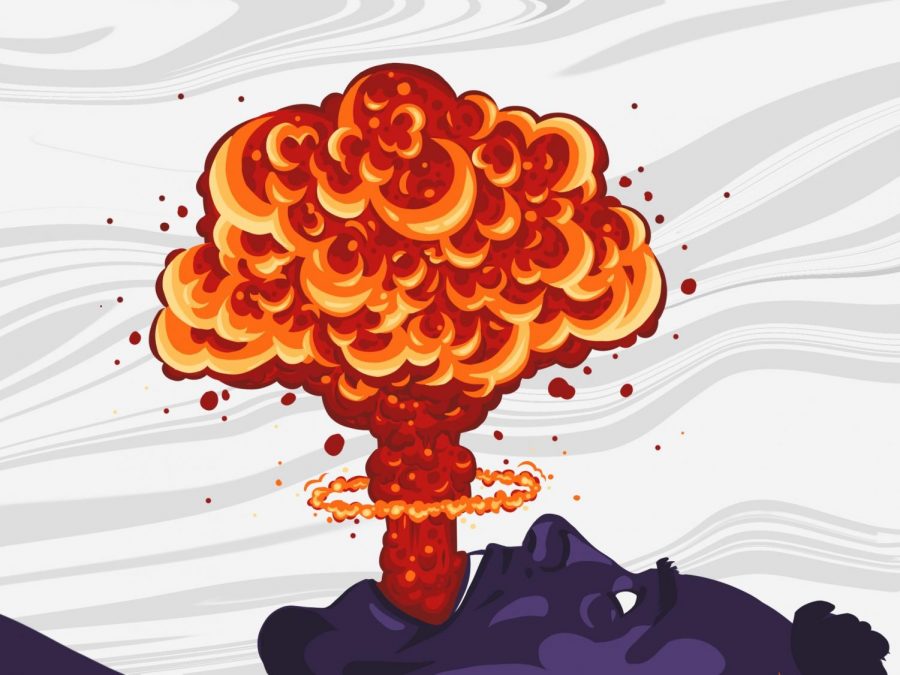The Spread of Hate: Never Again
Pundits and politicians constantly ask: why are these atrocious acts occurring? In the wake of the New Zealand tragedy, we pose a few theories.
The words and propaganda spread through the media have powerful, and sometimes detrimental, consequences.
When we study the Holocaust in our schools and history books, we often use the phrase, “Never Again”. We say we will never let ourselves be consumed with so much hate or be blinded by our differences. We vow to do better and to be better. Well, here’s the thing: if we don’t start paying attention, we can throw all those promises out the window. It can happen again. In fact, we’re terrifyingly close to repeating our atrocious history.
The reason? It’s not weapons or even guns. It’s not necessarily our politicians either. It’s messages and words– words of hate that can be used to exploit those susceptible to violence. It’s the power they hold and the increasing access to them.
Every movement has an origin, and even the most horrible acts can start with simple propaganda. In history, it started with paper pamphlets and books. In Nazi Germany, “The Poisonous Mushroom”, a book depicting Jewish people as monsters and vermin, was passed around to children. When Americans had slaves, they often passed around a “Slave Bible”, a Christian Bible with missing pages and altered sections that was used to persuade owners and slaves alike that what they were doing was moral.
Today, we have the white supremacist group Identity Evropa hanging flyers with pictures of George Washington and lines like, “European Roots, American Greatness”.
These methods of diffusion, while disgusting and repulsive, are not necessarily fast ones. We also, however, have dangerous words that can be Googled online. Messages of hate and white supremacy can be found on the Instagram explore page. It transforms into an exponential process, and the propaganda spreads like wildfire.
An example of the dangerous build-up of these messages lies in the tragedy that happened in New Zealand on March 15th. Fifty people in two mosques were shot and killed for peacefully practicing their religion. The main motive of the shooter was publicity. He wanted to actively spread hatred because even he knew the power of spouting off angry words. The shooter had written a lengthy manifesto, outlining his ideologies, and even recorded the massacre in hopes of it spreading online.
Recognizing the danger of such propaganda, New Zealand even banned possessing the manifesto or watching the video. Any violators could face an upwards of ten years in jail.
So, yes, these words are a big deal– even major governments are taking them seriously. The increasingly easier access to them is scary. In fact, it resembles a downright epidemic.
Because all the shootings and massacres that have been happening aren’t done by normal, everyday people who get their hands on a gun. They’re done by extremists who are convinced beyond a shadow of a doubt that someone’s mere existence is a crime. They’re done by people who were already mentally unstable and were fed thousands upon thousands of words of hatred.
What’s even deadlier is the invisibility. No one can see the spread of ideas. No one thinks to look over their shoulder for the manifestos being spread on the Internet.
Our enemies aren’t foreign. They’re not people any different than us. They’re our neighbors who have been diseased with hate and plagued with major superiorities issue.
And let’s be clear about this: these messages are not diffused by those exercising their freedom of speech. Nothing good can come out of them. It’s exactly the contrary. People die because of propaganda like that.
Additionally, crimes motivated by such messages aren’t isolated. They act like a sick sort of inspiration for others. On March 24th, a little over a week after the New Zealand shooting, a mosque in California was set on fire. Fortunately, no one was hurt, but a note referencing the previous shooting was left at the scene. It’s a direct example of hate causing even more hate– of toxic ideas causing violence across the world.
It’s not going away, either. In 2018, white supremacy propaganda increased by a stunning 182 percent.
It is unacceptable to minimize the severity of hateful words. It’s ignorant to allow heinous propaganda to be spread across our social media platforms and assume that no one’s crazy enough to take the bait. It’s unreasonable to pretend that they have no meaning or that no one’s paying attention. Someone’s always paying attention.
Simply, it’s not okay to turn a blind eye to the hate because if we do, we become indifferent to it.
And as Holocaust survivor, Elie Wiesel, once famously said, “Indifference is always the friend of the enemy, for it benefits the aggressor… In a way, to be indifferent to that suffering is what makes the human being inhuman.”
So, yes, paying attention matters. Acknowledging and actually caring about the hate that is plaguing our surroundings is critical. Because, no matter how likely I said it is, it’s not okay to repeat our awful history. It’s not okay to relive the horrors of the Holocaust.
The victims and the survivors deserve better. Today, we deserve better. The minorities that are being exploited deserve better. Our kids, who are watching our every move, deserve better.
Right now, we face something nearly impossible to stop– the spread of ideas. And like all things, it will only get better if we recognize that real threat, its challenges, and open our eyes. Most importantly, we need to realize the power that words truly have. Doing so is the only way to make sure we truly take the words “Never Again” to heart.

Kristen Kinzler is a sophomore at North Allegheny Intermediate High School. This is her first year as a journalist on the newspaper staff. She loves playing...

As a sophomore at NAI, I enjoy spending my free time drawing, taking pictures, playing piano, and carb-loading for Wii Bowling Nationals. I am also seriously...



David Field • Apr 14, 2019 at 2:25 pm
Well written. We must always be alert and take steps to fight anti-semitism. The first steps take place in the classroom. See the website Toli.us.